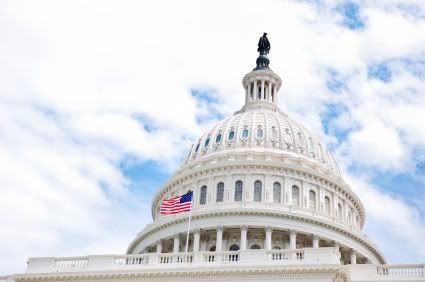A presidential diktat on immigration is not the only abrogation of power by an overreaching administration we have to fear. The New York Times reports:
The Obama administration is working to forge a sweeping international climate change agreement to compel nations to cut their planet-warming fossil fuel emissions, but without ratification from Congress.
In preparation for this agreement, to be signed at a United Nations summit meeting in 2015 in Paris, the negotiators are meeting with diplomats from other countries to broker a deal to commit some of the world’s largest economies to enact laws to reduce their carbon pollution. But under the Constitution, a president may enter into a legally binding treaty only if it is approved by a two-thirds majority of the Senate.
To sidestep that requirement, President Obama’s climate negotiators are devising what they call a “politically binding” deal that would “name and shame” countries into cutting their emissions. The deal is likely to face strong objections from Republicans on Capitol Hill and from poor countries around the world, but negotiators say it may be the only realistic path.
“Only realistic path” means that this is the only way that the Obama administration and U.N. bureaucrats who believe they know what is best can force their will on a recalcitrant American public. One would hope that strong objections in the U.S. won’t come only from Republicans on Capitol Hill but from Democrats who oppose monarchical government in the United States.
A U.S. senator, speaking of something he wanted the administration to do, recently admitted on TV that perhaps the president didn’t have the power to do it under the Constitution. He said that maybe the president could “borrow” the authority to do whatever all-important thing the senator wanted him to do (it seems as if it may have been immigration, but there are so many abuses of power lately that I can’t with certainty recall the particular issue). What we are seeing is a radical change in our system of government: Power once borrowed by an executive is unlikely to be returned. It would take an almost saintly executive to surrender this power. That, of course, is one of the reasons the Founders set up a system of checks and balances.
The New York Times continues:
“There’s a strong understanding of the difficulties of the U.S. situation, and a willingness to work with the U.S. to get out of this impasse,” said Laurence Tubiana, the French ambassador for climate change to the United Nations. “There is an implicit understanding that this not require ratification by the Senate.”
The difficulty in the U.S. situation, just to be clear, is the requirement that treaties be ratified by Congress.
American negotiators are instead homing in on a hybrid agreement — a proposal to blend legally binding conditions from an existing 1992 treaty with new voluntary pledges. The mix would create a deal that would update the treaty, and thus, negotiators say, not require a new vote of ratification.
Countries would be legally required to enact domestic climate change policies — but would voluntarily pledge to specific levels of emissions cuts and to channel money to poor countries to help them adapt to climate change. Countries might then be legally obligated to report their progress toward meeting those pledges at meetings held to identify those nations that did not meet their cuts.
“There’s some legal and political magic to this,” said Jake Schmidt, an expert in global climate negotiations with the Natural Resources Defense Council, an advocacy group. “They’re trying to move this as far as possible without having to reach the 67-vote threshold” in the Senate.
The legal and political magic is black magic, if you care about our system of government. The 67-vote threshold in the Senate becomes merely something to be evaded by sleight of hand.
After tearing up our system of government, we must also face another disquieting consideration: do Obama officials and U.N. bureaucrats really know best?
For science that is unproven (we need to know much more about climate change before draconian regulations) poor nations will be consigned to permanent poverty. Supposedly, they will receive increased handouts from developed nations to compensate—in itself a form of poverty.
In one fell swoop, the Obama administration is proposing something that will harm our system of government and promote poverty. But you can’t say they are novices at either.


